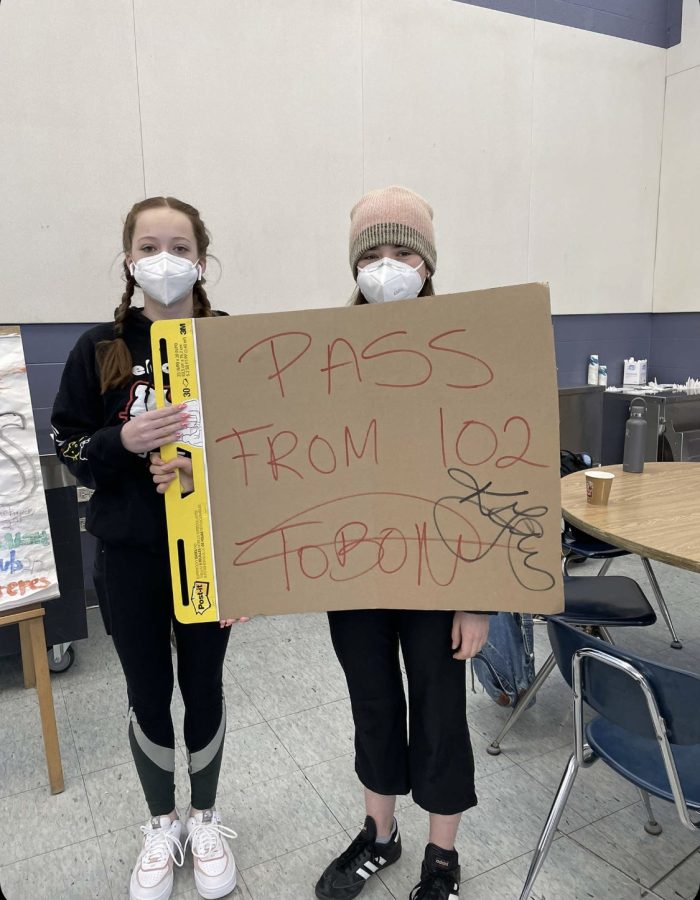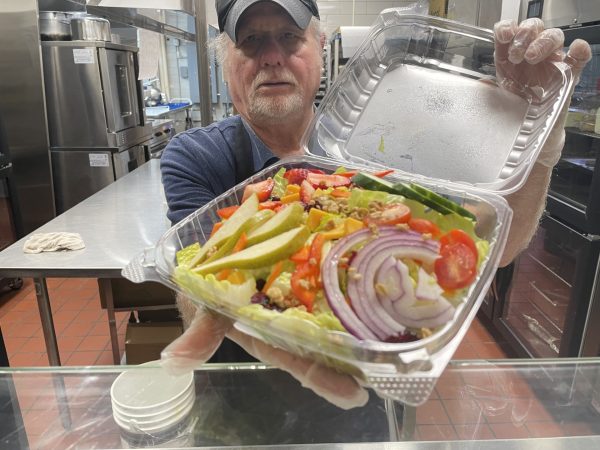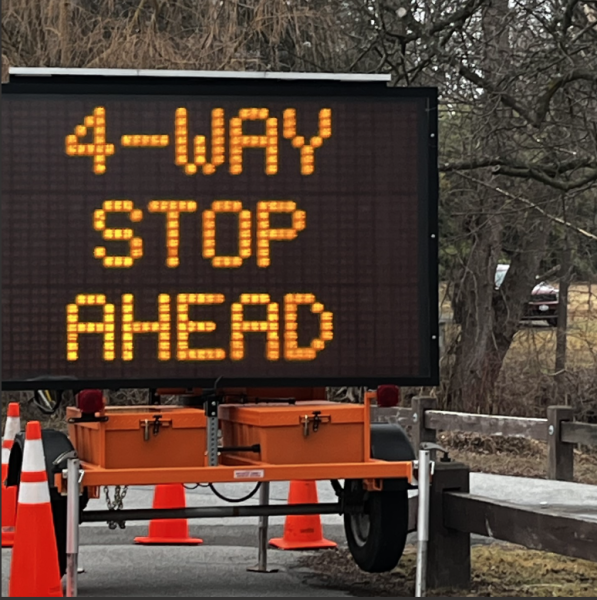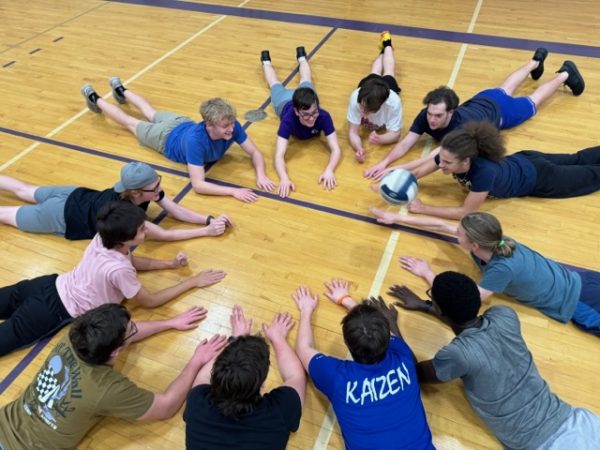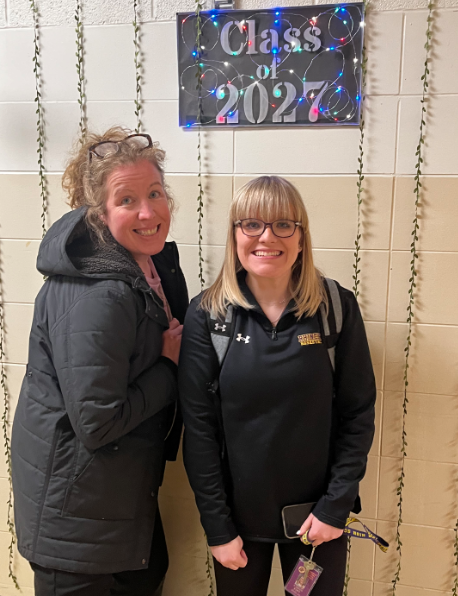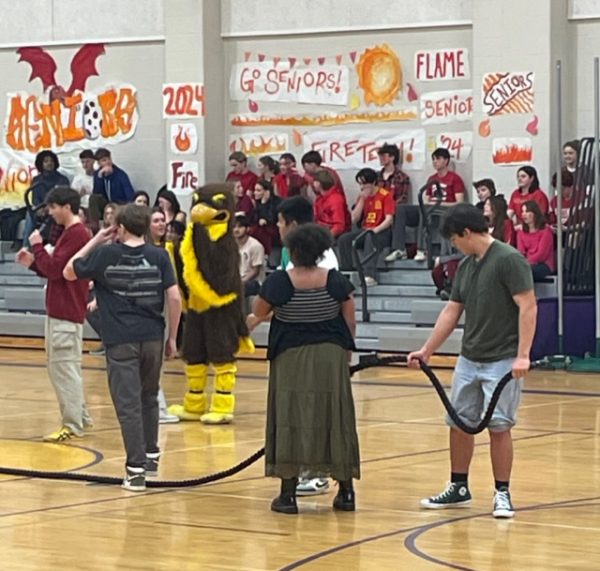“Do you Have a Pass?”
After running out of passes the teacher got creative to write two students a pass. Danica Milliot on the left and Chloe Moor on the right.
Trying to return to “normal” after the pandemic, many schools across the country now have a stricter pass policy, including Rhinebeck High School.
Teachers have now found it’s time to return to the old ways of school, with passes and various policies that govern student behavior.
Student journalists across the country are speaking out about these strict pass mandates in their school papers. Papers like the Lion Digest in Latham NY, The Tide in Rockville Maryland, Tri-color Times in West Valley City UT, Bulldog Times in Bandera Texas, and many more, are student papers criticizing restrictive hall passes.
Teachers and staff state that the return of this policy is less about passes, and more about giving students some feeling of normal after two years of online learning.
Edwin Davenport, Principal at Rhinebeck High School, gave his reason for the return to these policies in an interview.
“In my observations sitting in on classes, a lot of students were spending much too much time outside of class wandering in the hallways…one of my functions is to ensure that students are in class for the most amount of time,” said Davenport.
The professional staff, aides who help keep the school running smoothly, asked administration for passes to be reinstated.
Students wandering in the halls are “mostly the 9th and 10th graders, ” says Ms. Euell, an aide at Rhinebeck High School.
Most students in 9th and 10th grade at Rhinebeck haven’t had the most normal high school experience, because of Covid. Passes were meant to bring back the rules that we all feel familiar with in high school.
The idea of senior privilege when it comes to passes remains to be considered. Seniors at Rhinebeck argue that they understand the rules and regulations better than anyone and should not be required to have passes.
At the beginning of the year, having no passes went unnoticed by many teachers.
“I don’t think it was a major issue because if you were late to a class, for the most part, a lot of teachers would give you a call if it was a good chunk of time. It was not the student’s fault, but the teachers that had to take the extra time,” said Ms. Baccaro, Statistics and Calculus teacher.
For some teachers, passes are seen as an inconvenience. Scrambling to find and sign those yellow slips is a waste of time.
Not only are passes seen as a waste of time, but a “waste of paper,” said Adrianna Jones, ninth-grade student.
Jones said we should think of the hundreds of passes that get thrown out or left because they are single-use.
“Personally, I did not see a problem with students not having passes before. If I were in a position where I was looking for a student (guidance, aides, attendance, etc.) I might have a different opinion,” said John Cahill, US History teacher.
“My sense is that most students don’t need to use passes, however there are some that absolutely need to be accounted for. For safety and accountability, the staff needs to know where students are. If students wander and go wherever they please when-ever they want, we lose accountability and structure. While requiring students to have passes does not guarantee student accountability, it may help,” said Cahill.
Passes are the key to accountability or a necessary evil, depending on who you ask. From an attendance and aide viewpoint, passes are helpful to know where students are and need to be.
But from a student standpoint it takes away trust, sending the message that the staff trust a slip of yellow paper over the student holding it.

